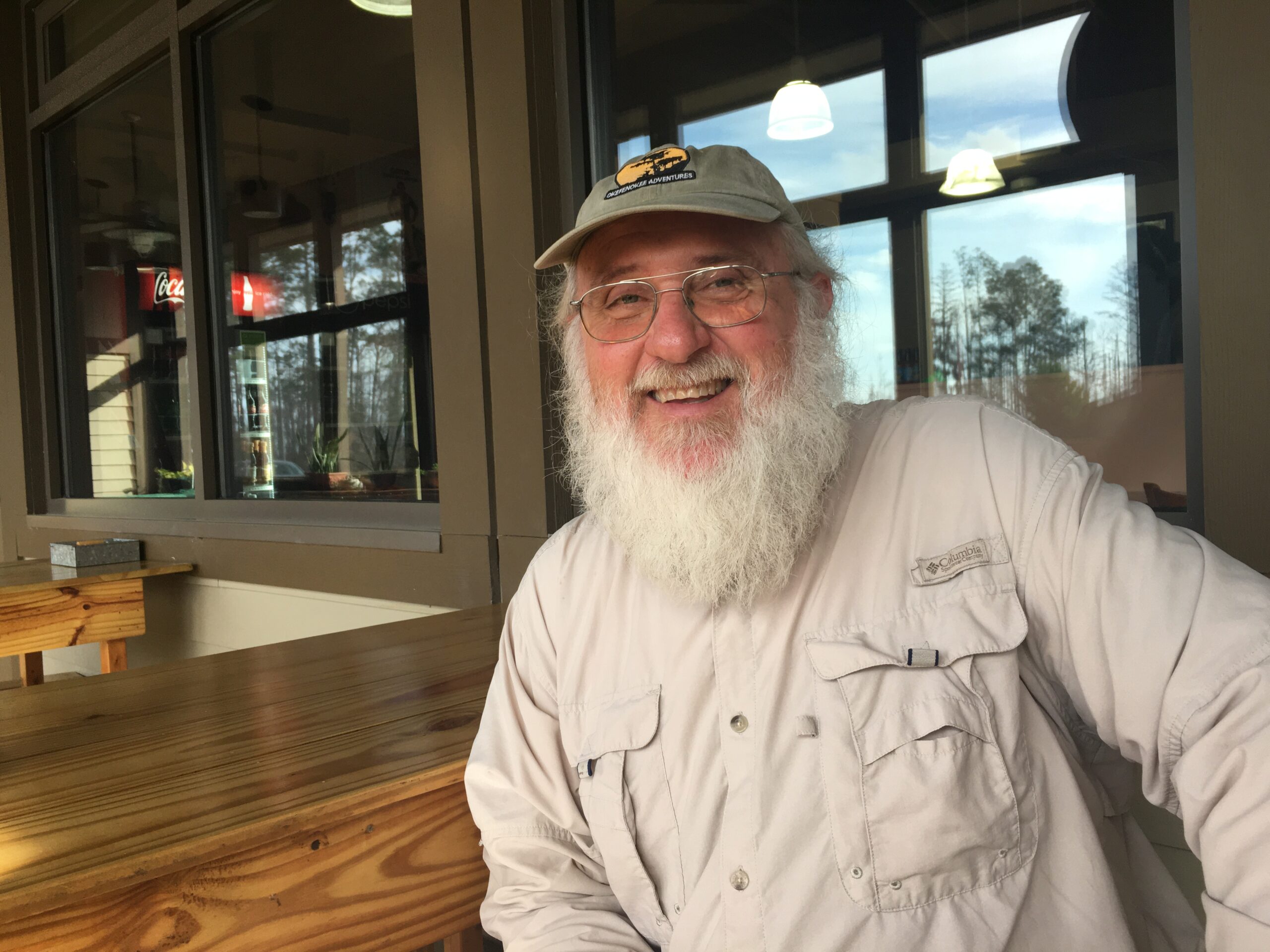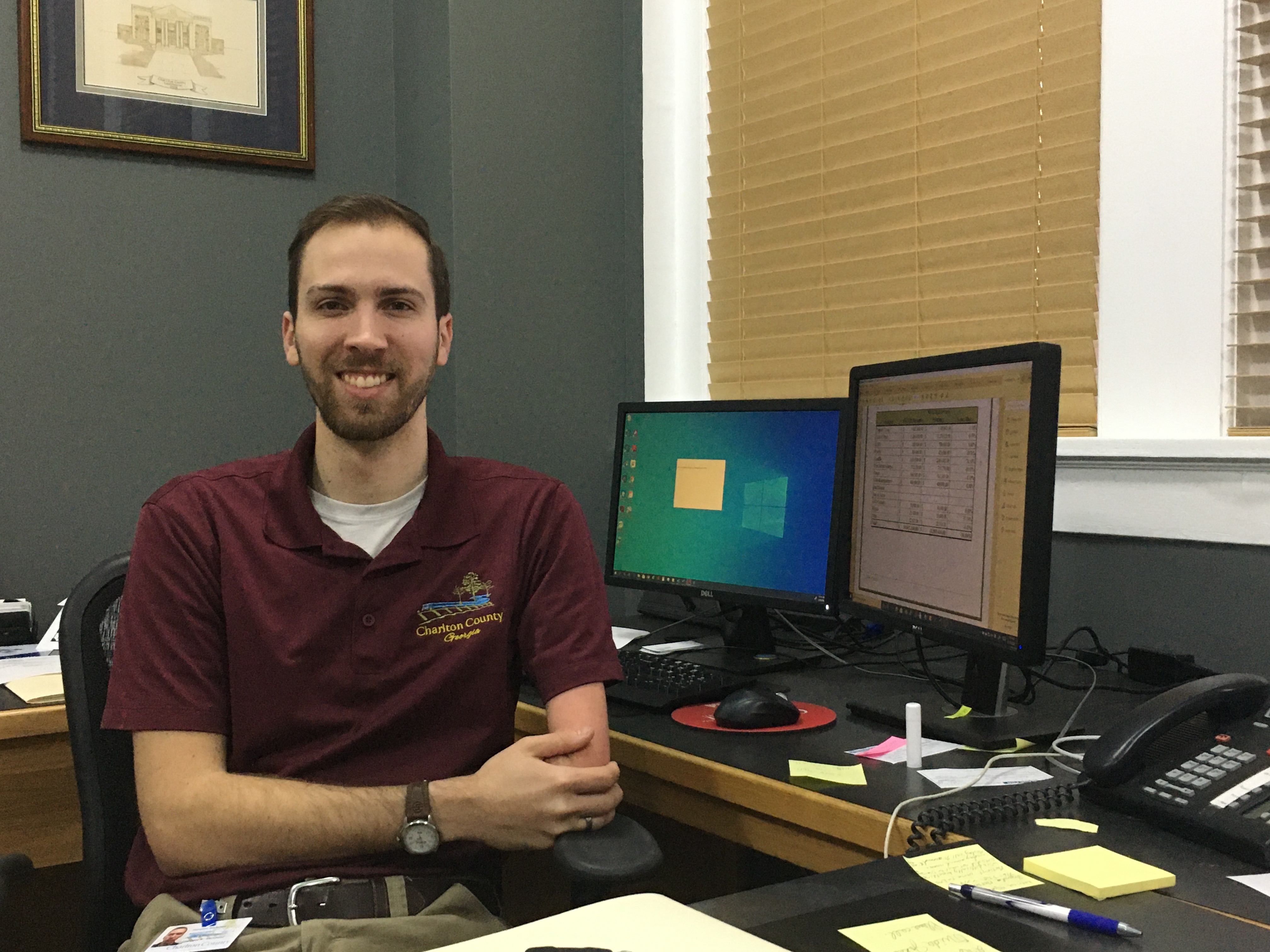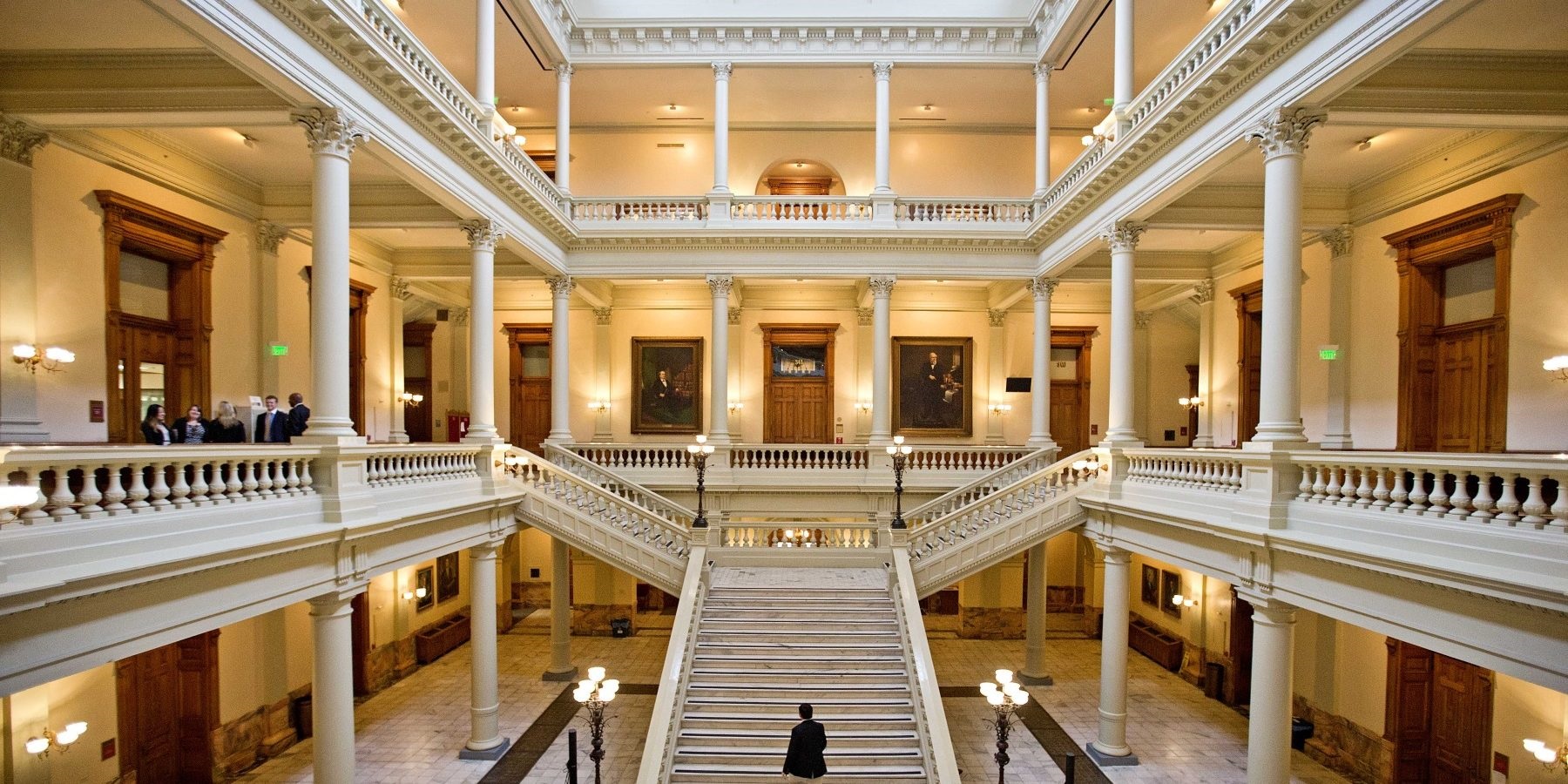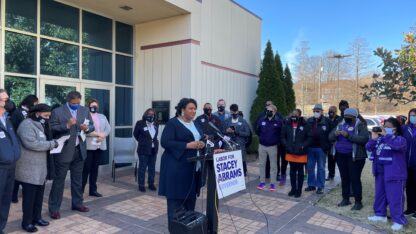In Rural Ga. County, Coal Ash Brings Revenue — And Concerns

Chip Campbell – who owns Okefenokee Adventures with his wife — agrees that coal ash needs to come out of the unlined pits it’s historically been stored in, but that doesn’t make him feel any better about it coming to Charlton County.
Molly Samuel / WABE
Hampton Raulerson grew up in Charlton County, a South Georgia county of tree farms and swamp. He never thought he’d move back as an adult, though.
“As far as job offerings go, there’s not a lot here for [people with] higher education,” he says.
Then a few years ago, he did move back with his wife, to take the job of county administrator.
There’s still not a ton in the way of economic development, though.
Charlton is a small, rural county – it includes that little nub of Georgia that dips down into Florida. There’s some tourism from the Okefenokee Swamp, which is partially in the county. There’s an immigration detention center, lots of tree farms, a controversial proposal for a new mine, and a big landfill.
Raulerson says he’d like for Charlton to become a bedroom community for Jacksonville, Fernandina Beach and St. Marys.
“You can get to all of them quickly but not have to deal with big city,” he offers, as he drives through miles of pine trees toward what’s currently one of the county’s primary sources of revenue: the landfill.
It wasn’t until he got the job as county administrator that Raulerson says he realized how important that landfill is. It’s a significant part of the county’s budget, Charlton’s second-biggest revenue source behind property taxes. In the county’s 2019 budget, about 18% of the county’s revenue came from the Chesser Island Road Landfill.
And that’s why Raulerson’s concerned about anything that could affect how much business the landfill gets, including from companies dumping coal ash.
A handful of landfills in Georgia have accepted millions of tons of coal ash in recent years. It’s a potentially toxic byproduct from burning coal for electricity, and as utilities around the Southeast clean up their coal ash, it’s become a gigantic waste stream.
Now, there’s a move to increase a fee on dumping coal ash in Georgia in order to send more money to the largely rural counties that are taking it all in. Currently, the fee is lower for coal ash than for regular household waste.
The conversation around the proposed legislation highlights the situation that county administrators like Raulerson are in: reliant on a landfill to maintain the budget, and nervous about anything that could threaten the business of that landfill.
Coal Ash Coming to Georgia
“There’s a lot of movement on coal ash in the Southeast,” says April Lipscomb, an attorney at the Southern Environmental Law Center.
In the past few years, utilities have worked to clean up their coal ash after a few disastrous spills and new federal regulations.

And environmental groups like Lipscomb’s want companies to dig the coal ash up and move it to lined landfills, since it’s a more secure way to store the potentially toxic material.
But Lipscomb is also concerned that so much coal ash seems to be coming to Georgia landfills. Not just from coal plants here in Georgia, but also from the Carolinas, Florida and Puerto Rico.
“So on top of having to deal with the coal ash that’s already here in Georgia,” she says, “we are also having to deal with out-of-state coal ash coming into the state of Georgia.”
Seven municipal landfills around the state are permitted to accept coal ash. According to reports filed with the Georgia Environmental Protection Division, utilities have dumped more than 4 million tons of it in those landfills in the last three years. Chesser Island Road Landfill in Charlton County alone has received 1.3 million tons.
“I’m sure it’s not great, but it’s a landfill,” says Raulerson. “A landfill in general’s not great.”
‘It’s Not Our Trash’
But Chip Campbell says, to him, it’s the principle of the thing.
Campbell owns Okefenokee Adventures with his wife, running the gift shop and renting boats in the Okefenokee Swamp. He’s also on the board of the St. Marys Riverkeeper.
“It’s the permanence of it that gives me a lot of heartburn,” he says while driving to the landfill.
From a rise in the road, the hump of the landfill appears above the pine trees.
“First time I came around the bend and saw you can see the top of that thing, I like to cry,” he says. “It’s gotten higher.”
Campbell says he agrees the coal ash needs to come out of the unlined pits it’s historically been stored in, but that doesn’t make him feel any better about it coming here to Charlton County, where it needs to be stored securely for the long haul.
“It’s not our trash that’s building this mountain bigger all the time,” he says.
Maybe not all Charlton County’s trash, but still, vital to the county’s budget.
‘No. 1 State That Other States Bring Their Waste To’
This is an issue that’s grabbed the attention of state lawmakers, too.
“I mean, we love to talk that we’re the No. 1 state to do business, but I don’t think we want to be the No. 1 state that other states bring their waste to,” says state Sen. Burt Jones, a Republican from Jackson.
A couple years ago, he introduced a bill to raise the fees a local government collects per ton of waste dumped in its municipal landfill. Not the total cost to dump, but the fee a Georgia county gets. It went from $1 a ton to $2.50.
“It was one of the tougher pieces of legislation I’ve ever had to do,” Jones says.
And by the time it passed, after what Jones says was major lobbying from utilities, a carve-out had been added. The fee for coal ash wouldn’t go up. So for household waste, the fee is $2.50 a ton. For coal ash, it’s still set at a dollar a ton.
That’s cost counties nearly $7 million, says Republican state Sen. William Ligon, who represents part of Charlton County.
“I want to actually bring this cost up to what it should be,” he says.
Ligon is sponsoring a bill this session that raises the fee for dumping coal ash to match the fee put on everything else.
“There’s a benefit to the local government. They should generate more revenues, and they could put those revenues to good use,” he says.
‘It’s Hard To Love A Landfill’
Raulerson has some hesitations about the proposal.
“It’s one of those things, it could be really good or really bad,” he says. “I don’t feel like there’s an in between.”
Because, of course, getting more money would be great, but he’s worried a higher fee could end up meaning the landfill loses some of that coal ash business, resulting in less money for the county.
“Anytime something starts going on with the landfill, we get nervous because that is such a revenue generator,” he says.
That’s not to say he doesn’t wish there were more options for Charlton County.
“I would have liked to see some industry that’s not going to get folks up in arms,” Raulerson says. “We have to take what we can get. When you’re competing with Waycross, and you’re competing with Jacksonville, and St Marys, and Brunswick, what do we have to offer that they don’t?”
Campbell agrees about wishing the county wasn’t so reliant on the landfill.
Bigger picture, he imagines the coal ash could be pulled out someday, and the landfill would shrink back down below the trees, and he worries about the times the landfill has exceeded its state permit limits on accepting coal ash.
Waste Management, the company that owns the Chesser Island Road Landfill, denied WABE’s request for a tour, but earlier in the day, Campbell had driven right in, and he and the local manager of the landfill caught up about their families and their plans.
Campbell even begrudgingly admitted that the landfill, which sits near the edge of the Okefenokee and is just a few miles away from his outfitting company, is kind of a great spot for birding.
Still, he says, “it’s hard to love a landfill.”








